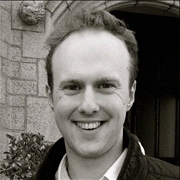Tutor HuntResources Music Resources
Does Opera Have A Future? [excerpt]
University of Oxford - BA (Hons) Music First Class - coursework project [excerpt)
Date : 22/09/2015
I could see that I would contribute no more new operas, masquerades, charades. I feel opera is finished. Yet the basic idea of putting drama to music is, of course, not finished.
- Hans Werner Henze[1]
1. Introduction
As Hans Werner Henze's quotation suggests, in order for opera to have a future, it must reclaim as its prime focus 'the basic idea of putting drama to music', rather than focusing on external (arguably peripheral) concerns, such as the scenery, costumes and so on.[2] Nicholas Ridout conceives of opera as 'always Baroque', due to this reliance upon 'spectacle' (such as costume, sets and virtuosic vocal displays) that has always been found in the art form.[3] Instead, he suggests the priority that should be given to the musical work as something which exists outside of any singular theatrical production, and which transcends any individual production too. According to Theodor Adorno, this 'optimal presentation' of the work as a musical object can be found in recordings rather than in going to see an opera, where there are so many other factors present to distract from the music and the narrative.[4] Following this assertion, if opera is to have a future, then the notion of music as the 'true object of opera' must be absolutely brought to the fore, looking to contemporary life and contemporary modes of storytelling in order to achieve meaning in the pluralistic postmodernity of the twenty-first century.[5] In doing this, rather than being an art form which seems to modern audiences to be stuck somewhere in the late eighteenth century, opera can be radically dragged forward, by emphasising the primacy of the music and its realisation on stage above all else.
This essay shall examine the ways in which three 'post-minimalist' operas,[6] Steve Reich and Beryl Korot's Three Tales, John Adams and Alice Goodman's The Death of Klinghoffer, and Adam Cork and Alecky Blythe's London Road, refute this notion of opera as 'always Baroque'.[7] It will suggest the ways in which these three works approach similar kinds of operatic "stories" - real events in the recent past, rather than traditional operatic grand or mythical narratives - in hugely variant ways, whilst also exploring how these plots are enhanced through the musical language employed and the role of technology (particularly in Three Tales). Central to these operatic "stories" is the notion of truth and morality in storytelling, exemplified by the ways in which Three Tales and London Road engage with the technique of verbatim theatre, whereby the actual words spoken by interviewees is used to create the work, rather than using a librettist to write an operatic text. Such a technique has much currency at present in both music theatre and non-music drama, and also helps to shed light on the controversy surrounding the narrative strategies employed in The Death of Klinghoffer (even if such a technique is not actually used in this work). Ultimately this essay will advocate the superiority of music and narrative over 'spectacle' as one possibility out of many for the future of opera.[8]
Get in touch to read more!
[1] Hans Werner Henze, quoted in George Harewood et al., 'The Future of Opera', Daedalus, 115/4, (Fall, 1986) (The MIT Press on behalf of American Academy of Arts & Sciences), 3.
[2] Ibid., 3.
[3] Nicholas Ridout, 'Opera and the technologies of theatrical production', The Cambridge Companion to Opera Studies, ed. Nicholas Till (Cambridge: Cambridge University Press, 2012), 164.
[4] Theodor W. Adorno, 'Opera and the Long-Playing Record', Essays on Music, ed. Richard Leppert, trans. Susan H. Gillespie (Berkeley, London and Los Angeles:?University of California Press, 2002), 284.
[5] Ibid., 285.
[6] Sean Atkinson, 'Canons, Augmentations, and Their Meaning in Two Works by Steve Reich', Music Theory Online, 17/1 (April 2011). Web. Accessed 08 Jan. 2014.
[7] Nicholas Ridout, op. cit., 164.
[8] Ibid., 164.
This resource was uploaded by: Toby

